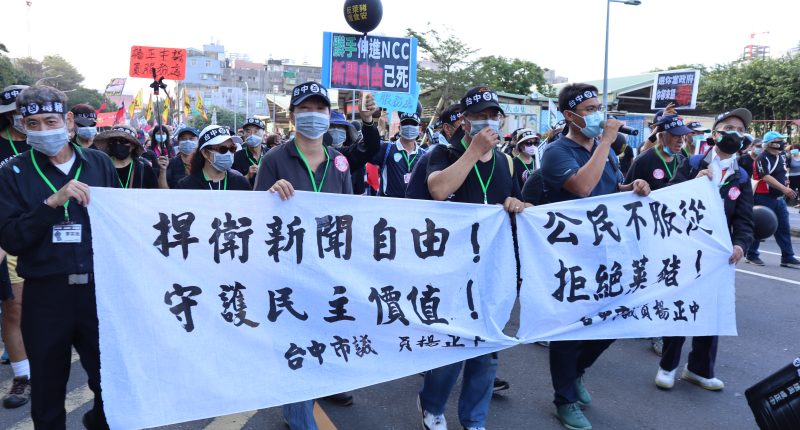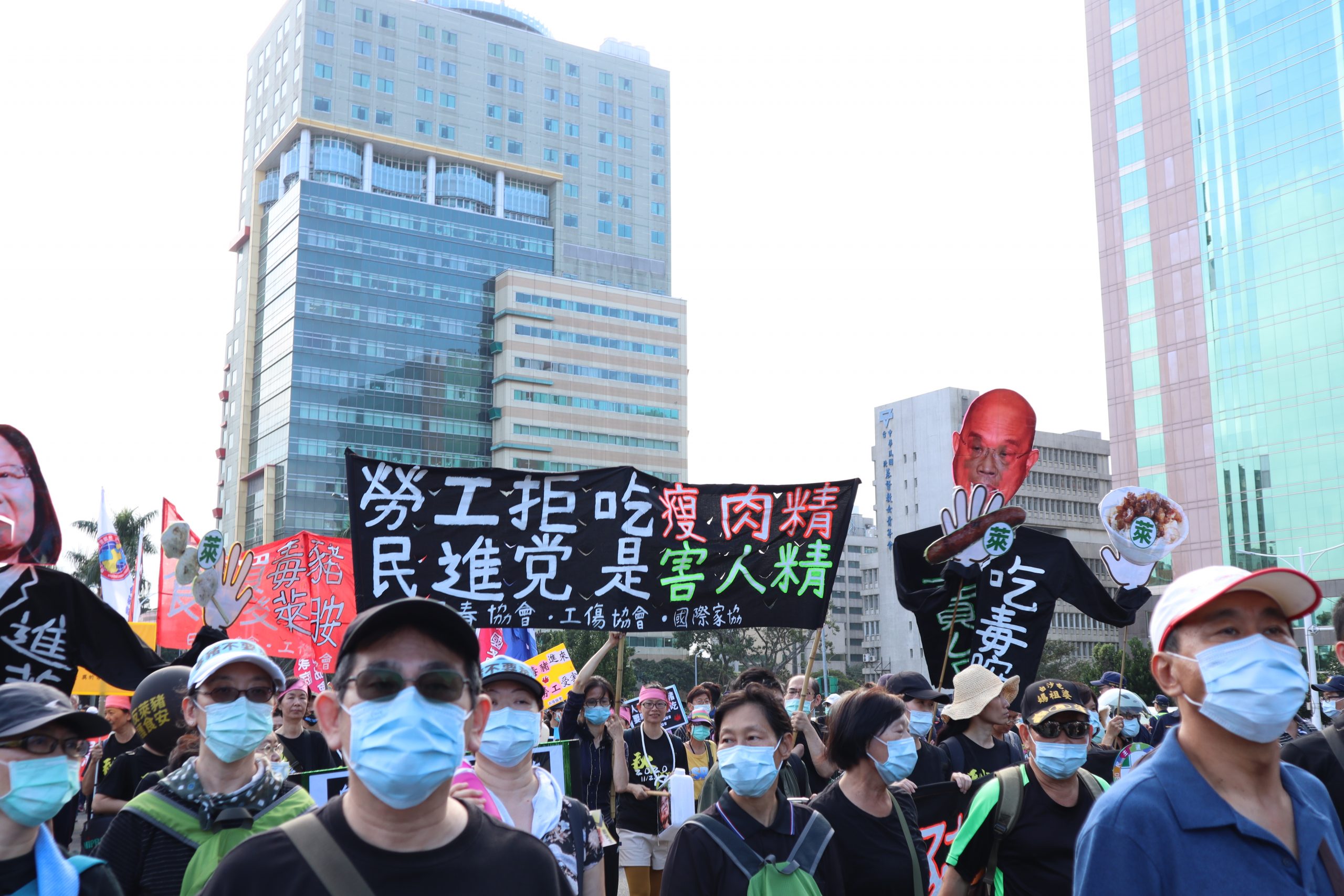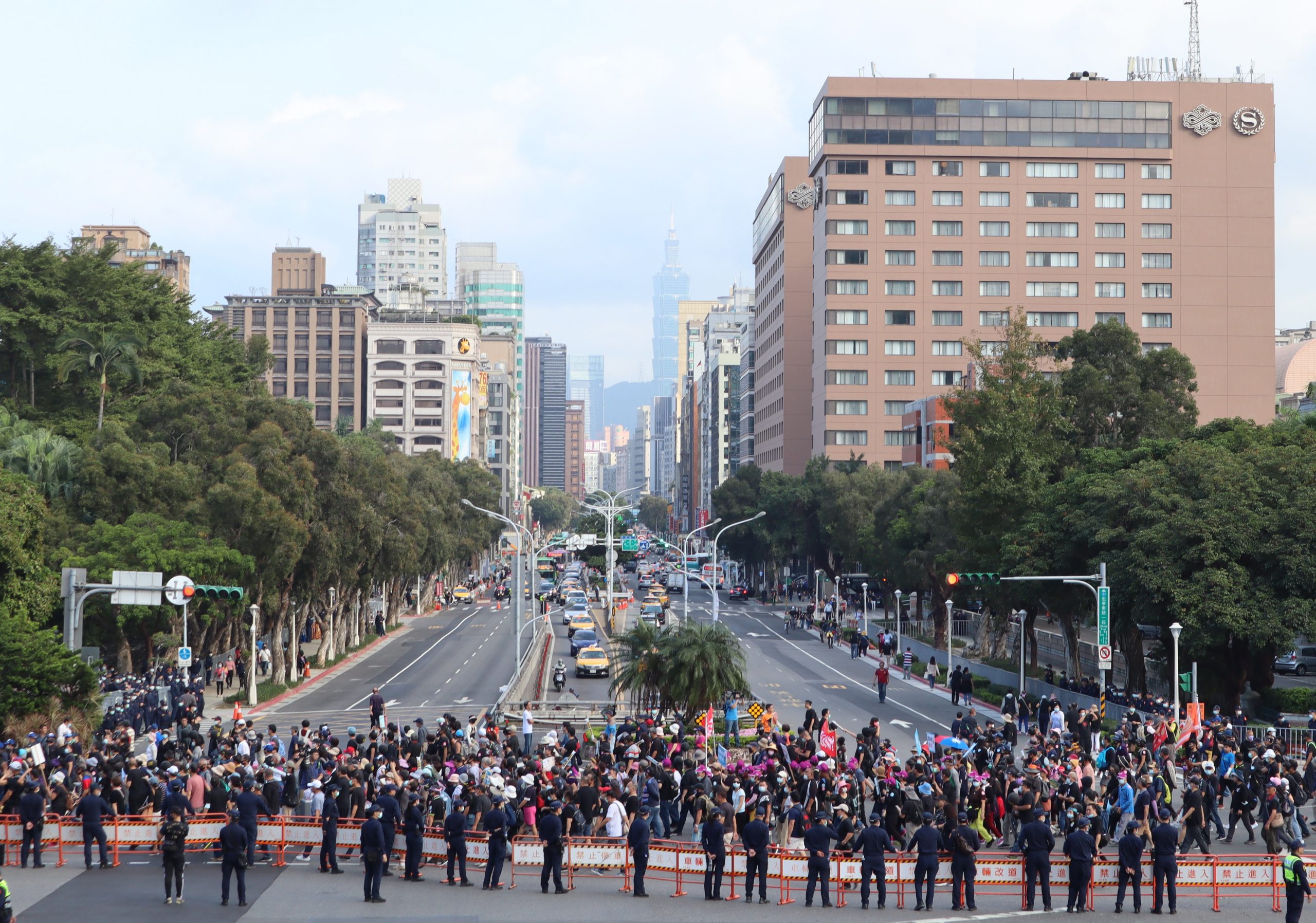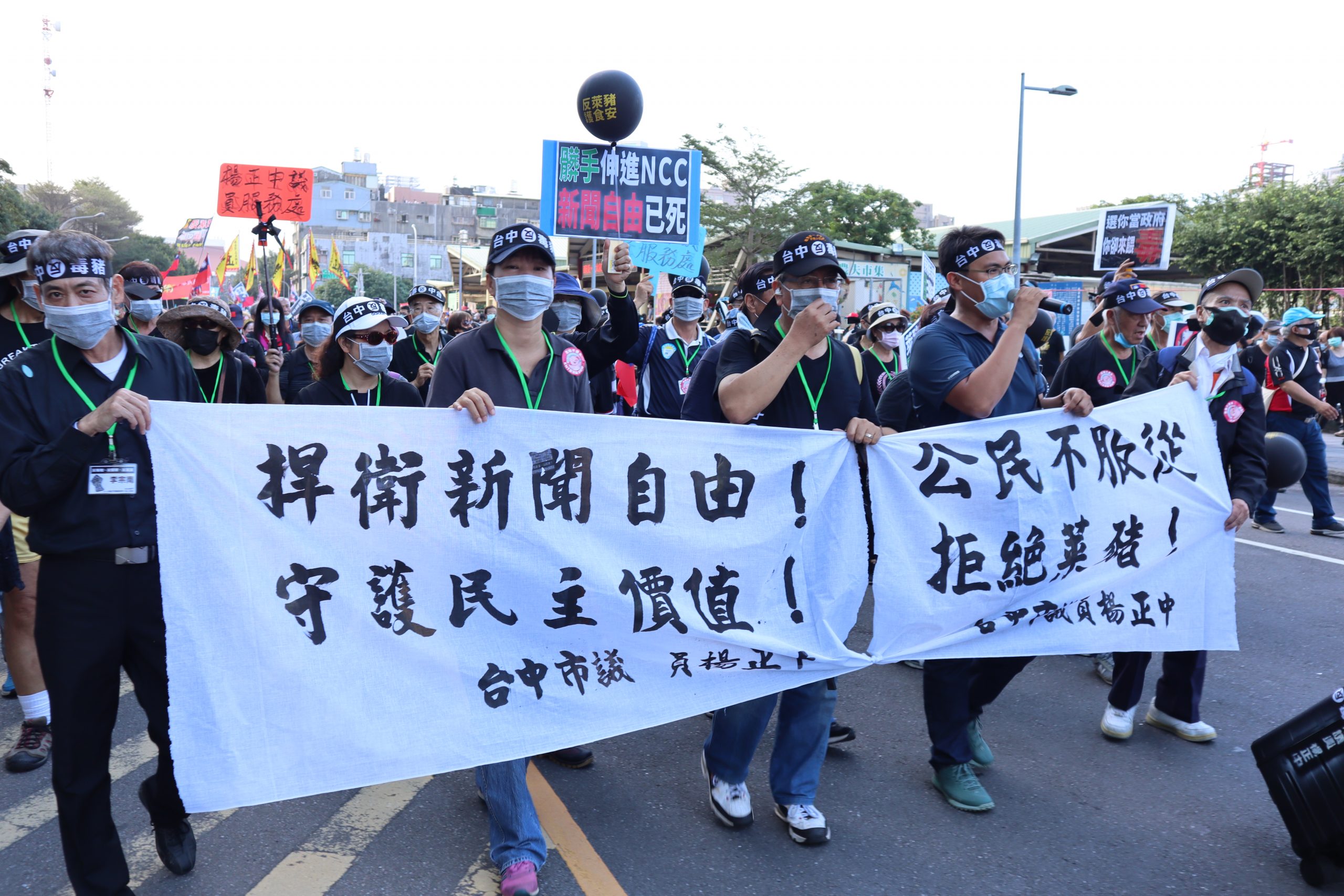Editor’s note: Much has been written about Sunday’s ‘Autumn Struggle’ by Taiwan’s established domestic media, blue and green, by non-Taiwanese residents on social media, and even one or two avenues of the overseas media.
But how much has been penned by the next generation of Taiwanese?
Celine Kuan attended the march for The Taiwan Times to see what was going on. As a member of that ‘next generation’, this is her take.
More than 50,000 protesters took to the streets of Taipei last Sunday, most because they disagree with the ruling government’s plans to allow the import of so-called “racto-pork”, the “double standards” seen in DPP (Democratic Progressive Party) rulings on the issue, and the concept of the “one party-state.”
Backed by 42 different groups, the 2020 Autumn Struggle, the oldest domestic movement which strives for improvements in a range of areas including better labor rights, started off from the front of the Presidential Office Building, and moved slowly towards the headquarters of the ruling DPP.
And with this year’s participants including supporters and members of the opposition party Kuomintang (KMT), led by Party Chairman Johnny Chiang, in addition to members of the Taiwan People’s Party (TPP), and other smaller parties in Taiwan the march took on a more political feel than normal with labor rights pushed to the side somewhat.
KMT shift the demo focus
The main opposition KMT rallied its attending supporters into dressing in dark-colored clothing, to join the event primarily to oppose the decision taken by the DPP to import American ‘racto-pork’ which, it is feared will threaten food safety.
KMT Chairman Johnny Chiang told his supporters, “Taiwanese pigs don’t eat ractopamine and yet you are asking Taiwanese people to (do so)? Does this make sense?”
Ractopamine is a controversial food additive banned in over 160 countries around the world.
The KMT under Chiang have recently been working to maintain Taiwan’s ban on importing pork that contains ractopamine, and have been pushing DPP President Tsai Ing-wen to take part in a televised debate on the issue.
To date, she has not indicated that she will do so.
Import policy at odds with public opinion
One of the rank and file participants at the march hailing from Banqiao, pointed out a health issue some may face when the government loosens regulations on ‘racto-pork’ imports, saying, “There are labels on the racto-pork (stating it contains ractopamine), which would likely put some at increased risk (especially those who suffer from renal issues).”
Two other attendees, speaking to The Taiwan Times (TTT) both said that the ruling “DPP opposed the decision to import U.S. beef (for health reasons) while the KMT was in power; but now they’re facing a similar issue with a different mindset. There must be some benefits (for the DPP) behind (the scenes).”
Racto-Pork – coming soon to shelves near you
President Tsai declared in August this year that ractopamine pork, a form of the meat using a chemical to increase leanness but banned in the EU, China and elsewhere, would soon be sold in Taiwan.
However, based on a poll by the Taiwanese Public Opinion Foundation, nearly 60% of Taiwanese who responded objected to ‘racto-pork’ imports.
Chiang Wan-an, a KMT politician representing some of the most affluent areas of Taipei, expressed his concerns on the accurate labelling of pork treated with ractopamine once it is allowed to be imported into Taiwan.
As I see it
As is, was….., the Autumn Struggle that began in the late 1980s, has been cancelled numerous times over the years for various reasons.
It is seen as an ‘immature movement’ of sorts, so relatively lacking in influence that it is continually being ‘reborn’ to remain valid.
This, coupled to the fact that the name of the event – Autumn Struggle – is wholly unrelated to the labor campaign it purports to represent means it carries little weight.
As an aside, and relating to the main issue this year, the ruling government needs to face up to the pork issue, by conducting meticulous evaluations and requiring transparent, easy to understand labels given mainstream public opinion being so anti-‘racto-pork’.
Consumers have the right to products that meet their health needs and safety standards, and improving Taiwan-U.S. ties should not come at the cost of national food safety.
The safety of imports should not be a bargaining chip – or chop – not for the Taiwanese of today, and certainly not for the next generation – my generation.
All images supplied by the author.












